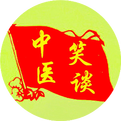
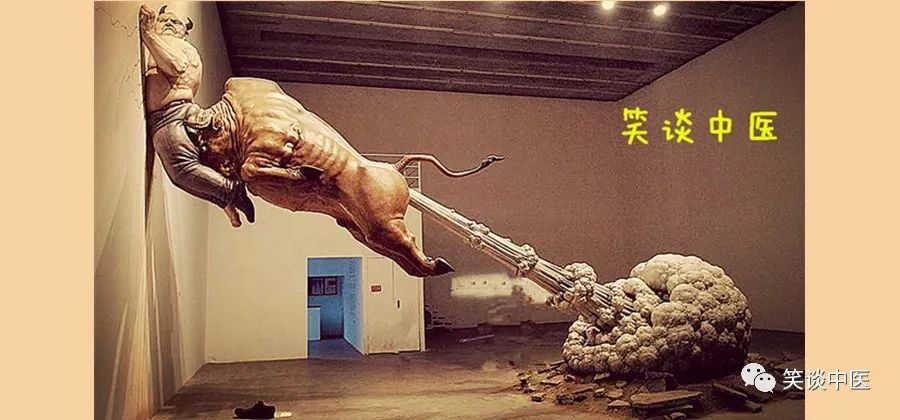
In a certain country, there exists a profession known as the “Flatulence Specialist”! The salary is quite substantial! I just want to say, this profession is not something one can just jump into; it requires extensive practical experience to make accurate judgments. Therefore, a salary of hundreds of thousands is not considered high for this profession. As for those who look down on it, let’s not go there; the entry barrier for this profession is quite high!Returning to the topic, the ancestors of the Flatulence Specialist are actually Traditional Chinese Medicine practitioners!What? You don’t believe it? The “smelling diagnosis” in the “Four Examinations” actually includes “flatulence diagnosis”, and now everyone has a puzzled look, let’s listen to the following song to ease the tension


Summary of this article:
1. What is the smelling diagnosis in Traditional Chinese Medicine?
2. The perspective of Traditional Chinese Medicine and Western Medicine on ‘flatulence’! The historical origins of ‘flatulence’!
3. In fact, you should let out more flatulence!
Take a look at Marilyn Monroe’s “skirt blown up by an unnamed gas wave”, this is truly a display of abundant “Qi”, a breathtaking performance; there’s no way around it, good health leads to strong gas ↓ ↓ ↓
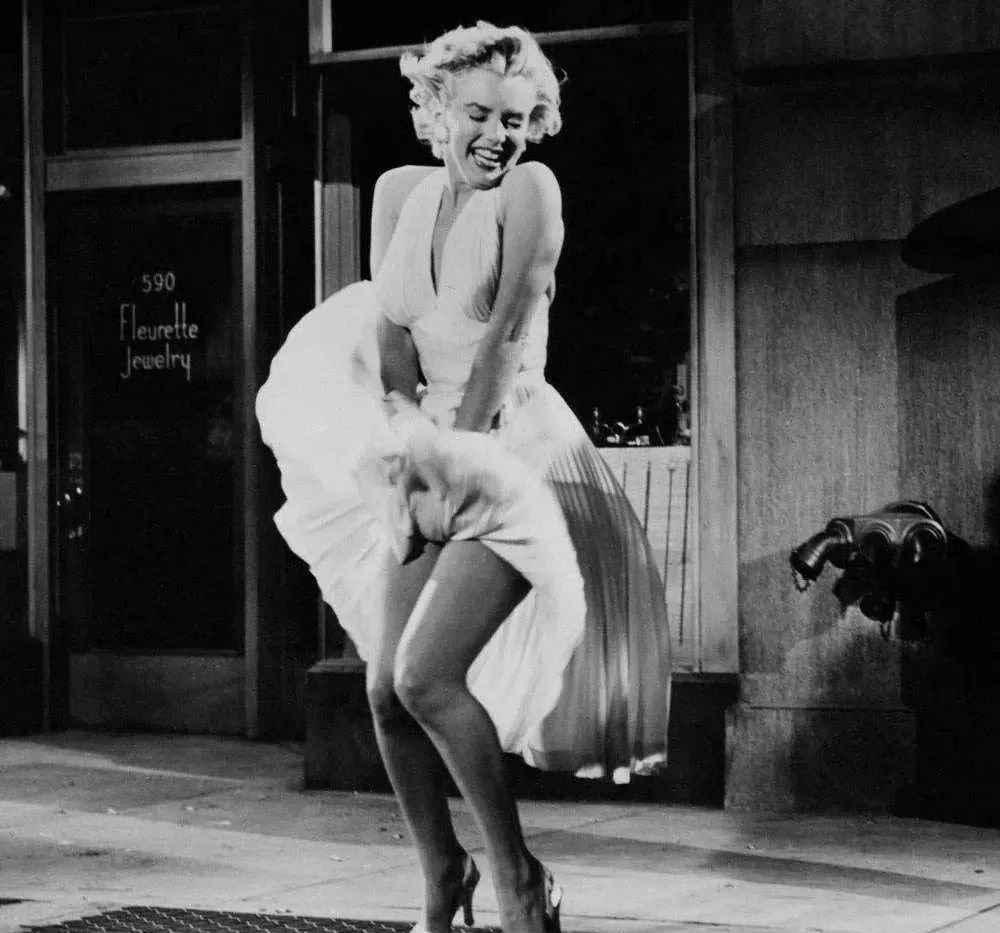
1. What is the smelling diagnosis in Traditional Chinese Medicine?
There are two types of smelling diagnosis in Traditional Chinese Medicine: one is “hearing”, which involves listening to cough sounds, breathing sounds, belching, bowel sounds, sneezing, laughing, singing, crying, and moaning; the second is “smelling”, which involves smelling breath, sweat, body odor, stool odor, flatulence odor, and vaginal discharge odor,
Of course, nowadays doctors are quite advanced, and in reality, there are fewer opportunities for close contact with patients, so smelling flatulence and stool has become something they disdain to do. However, we must never deny that this was established by the ancestors of Traditional Chinese Medicine; otherwise, terms like “smelling like rotten eggs, fishy, sour, rotten, and corpse-like” etc., where do they come from? They are not derived from questioning but from personal experience, and have been passed down through generations,
Some may think these are just patient complaints organized by doctors, but that would be a big mistake.
Many patients cannot describe these aspects clearly; don’t believe it? Describe the smell of your urine, stool, or vaginal discharge today? The vast majority of people cannot describe them; they do have odors, but ordinary people lack the discernment, while Traditional Chinese Medicine doctors have it and can describe it accurately!
For example, in Zhang Zhongjing’s “Jin Kui Yao Lue”, it states “sometimes there is foul phlegm with a fishy smell,… the prescription is Jie Geng Decoction”. In the “Huang Di Nei Jing” Suwen, Chapter 40, it states “the Emperor said: if there is a disease of fullness in the chest and ribs, it hinders eating, when the disease occurs, one first smells a fishy and foul odor, and then clear liquid is discharged, and blood is coughed up”. I won’t provide more examples, just to tell everyone that the “Four Great Classics” also place great importance on “smelling diagnosis”,
As stated in the “Nan Jing, Chapter 61”:
“To know by observation is called Shen,
“To know by smelling is called Sheng,
“To know by questioning is called Gong,
“To know by palpation is called Qiao,
And in the “Suwen, Chapter 78” it further states:
“If one diagnoses a disease without asking about its origin, worrying about dietary irregularities, excessive living, or being harmed by toxins, and does not mention this first, how can one diagnose the disease accurately by merely taking the pulse?”
Let’s digress and talk about pulse diagnosis!
Everyone knows that in today’s Traditional Chinese Medicine community, there is a type of practitioner who believes that “pulse diagnosis” is far superior to “observation, smelling, and questioning”. They think that a Traditional Chinese Medicine practitioner who does not take the pulse first is not a good practitioner, this thought aligns with many confused patients who prefer to have their pulse taken before stating their symptoms!
True confusion and false cleverness! When combined, it becomes a mutual desire, one willing to be beaten, the other willing to hit!
The two passages from the “Huang Di Nei Jing” and “Nan Jing” above are the best rebuttal to this “one-sided emphasis on pulse diagnosis”.
While assisting my master in consultations, I witnessed a real case of a pulse diagnosis expert. A patient came in, and since it was their first visit, my master took some time to examine them carefully,
The patient said to my master, “Previously, I went to that famous Traditional Chinese Medicine expert, and it was impossible to get an appointment normally. I had to buy a black market appointment for 8000 yuan. When I entered the room, I wasn’t allowed to speak; the left hand took the pulse, and the right hand wrote the prescription. From the consultation to the prescription being completed took a total of 2 minutes. The doctor didn’t even know what my illness was, and I took the medicine for half a year without knowing what it was treating!”
My master clicked his tongue and smiled! In the end, this patient fulfilled their dream here and didn’t even take 6 months!
Pulse diagnosis is not that miraculous! Speaking of which, many “experts” may disagree, but that’s fine; I have a case from the community, and if anyone disagrees, I will help you fulfill your dream!
In 2014, there was a sensational event where Western medicine offered a reward of 100,000 yuan, betting that Traditional Chinese Medicine’s “pulse diagnosis for pregnancy” accuracy would not exceed 80%. What happened? The two Traditional Chinese Medicine practitioners who accepted the challenge ultimately withdrew from the competition. Why? Such a public event, if they were 100% confident, who would give up? This community case reminds me of a certain martial arts founder challenging Dong Ge, only to withdraw from the competition at the last moment?
Pulse diagnosis is not unimportant; on the contrary, it is very important, but it is not so important that it surpasses the other three examinations. What does “Qiao” in the “Nan Jing” refer to? It actually refers more to the importance of diagnostic retrospection and the accuracy of differentiation results!
Earlier, I mentioned “I will help you fulfill your dream”; if you have read this far and still think your pulse diagnosis is remarkable, I will help you “bring glory to Traditional Chinese Medicine”! Let’s sign up for CCTV’s “Challenge the Impossible” project, which is “pulse diagnosis for pregnancy”! Rest assured, once successful, you will be the top expert in Traditional Chinese Medicine’s “pulse diagnosis”! At the same time, you will have no less than 500 patients seeking you out every day, and you won’t need to boast about how miraculous your pulse diagnosis is. Moreover, this will be a competition between Traditional and Western medicine, and you will bring glory to all Traditional Chinese Medicine practitioners, becoming the second Weng Quanhai!
So, those who say, “Doctor, take my pulse, and if you get it right, I will take your medicine”, such patients are actually very foolish and naive. “Foolish” because you are joking with your life! “Naive” because the person across from you doesn’t even need to take your pulse; through “observation and smelling”, they can judge your symptoms with great accuracy. It is meaningless to deceive each other; there are many Traditional Chinese Medicine practitioners who play “trickery”, but ultimately, only those who can cure your illness are the true practitioners!
Digression over, back to the main topic
This is the “smelling diagnosis” in the eyes of Traditional Chinese Medicine. Therefore, a good Traditional Chinese Medicine practitioner can gather a lot of information through hearing and smelling after spending some time with you. In fact, this sensitivity is cultivated through countless experiences!
2. The historical origins of ‘flatulence’! The perspectives of Traditional Chinese Medicine and Western Medicine on ‘flatulence’!
(1) The historical origins of ‘flatulence’!
The earliest recognition of the diagnostic value of flatulence must come from the great works of Traditional Chinese Medicine—”Huang Di Nei Jing”!
The earliest term for flatulence was not this name; it was called “Shi Qi”. The concept of “flatulence (Shi Qi)” first appeared in the “Suwen, Chapter on Coughing”. In the Nei Jing, “Shi” is interchangeable with the character for “stool”, so Shi Qi means “stool gas” = “flatulence”!
Next, the issue of flatulence was explored by the medical sage Zhang Zhongjing. He believed that “Shi Qi is caused by intestinal dryness”! He fully utilized Xiao Cheng Qi Decoction, observing the “flatulence condition” after medication to assess the illness. This type of “diagnostic treatment” was far ahead of Western medicine by 1700 years!
Well, since both of these great figures have mentioned flatulence, I am writing this article to prove the importance Traditional Chinese Medicine ancestors placed on flatulence, so flatulence is indeed important!
At the same time, both the “Nei Jing” and “Jin Kui Yao Lue” state that those who do not pass gas will have “nine orifices blocked”, so it is better to let out some flatulence; read on!
(2) The perspectives of Traditional Chinese Medicine and Western Medicine on ‘flatulence’!
The “Shi Qi” often mentioned by Huang Di and Zhang Zhongjing, and the “gas expulsion” that Western medicine is most concerned about after surgery, both indicate that “flatulence” is one of the indicators of whether the body is “normal”. So, what constitutes a proper “flatulence”?
Flatulence can be divided into two types: normal flatulence, which we also call “proper” flatulence, and abnormal flatulence, which is different from proper flatulence. Below, we provide the distinctions between “proper flatulence” and “pathological flatulence”!
What are the standards for proper flatulence?
(1) There should be 3-10 occurrences per day,
a. Exceeding this number is not good, indicating insufficient Qi, cold in the organs, food stagnation, or liver Qi stagnation.
b. If there is not a single occurrence in a day, it indicates “nine orifices are blocked”. What does this mean? It means there is significant blockage, and the next step is certainly not a good illness waiting for you!
(2) There should be an odor,
a. It should not be overly foul; gas-like flatulence or sour-smelling flatulence usually indicates constipation, food accumulation, or excessive heat.
b. It should not be odorless; odorless flatulence usually indicates Qi deficiency or cold in the organs.
(3) Sound is preferable to silence
a. A loud sound indicates cold in the organs, food accumulation, or liver Qi stagnation.
b. Silent flatulence is akin to a phone on “vibration mode”; it is also called “soft flatulence”, “mute flatulence”, or “stifled flatulence”, often seen in cases of Qi deficiency, constipation, or food accumulation.
(4) Flatulence before stool = normal flatulence, not a subject for discussion,
If you see the above “red text” part, that is normal flatulence, no need to be alarmed. If it is the “black text” part, then you need to pay attention.
In summary:
“Flatulence” represents whether the body’s “fu” is unobstructed and whether it is fulfilling its responsibilities in “governing the downward passage”. Therefore, from the perspectives of quantity, odor, and sound, as long as it is not normal, it must be abnormal.
So, how does Western medicine view “flatulence”?
Flatulence originates from the gas expelled by Escherichia coli and other bacteria, as well as swallowed air, gas produced by fermentation in the intestines, and alkaline secretions, all of which are sources of flatulence!
The chemical composition of flatulence is “59% nitrogen, 21% hydrogen, 9% carbon dioxide, 7% methane, and 4% oxygen”; they are odorless. So, what about the odor of flatulence? It mainly comes from the extremely small amount of volatile hydrogen sulfide and other trace components in flatulence,
In Western medicine, flatulence is seen as a sign of normal gastrointestinal function!
3. In fact, you should let out more flatulence!
In Traditional Chinese Medicine, there is also a belief that the human body is composed of Qi, which can be further divided into “clear and turbid Qi”. Clear Qi and turbid Qi, like Yin and Yang, must always maintain a balance. Therefore, passing gas is completely normal; if flatulence is odorless, it indicates that the expulsion of turbid Qi is not smooth, and clear Qi cannot rise, which is why turbid Qi cannot be expelled downwards.
Thus, after consuming “tonifying” herbs, clear Qi must increase, clear Qi rises, and turbid Qi descends, resulting in more flatulence, often with a stronger odor. Therefore, the quantity and odor of flatulence are actually a barometer of the “clear and turbid Qi” within the body!
My four personal spaces (click the image to enter)
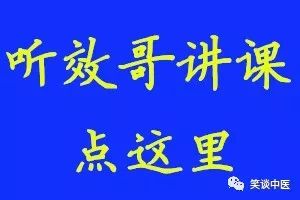
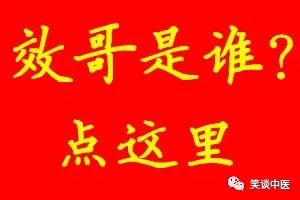
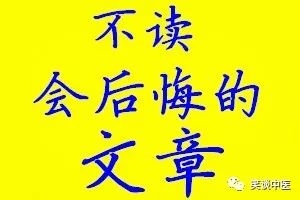
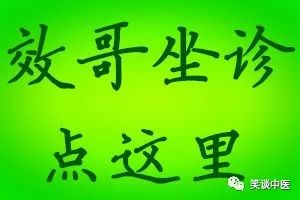
Disclaimer: The “Xiaoxiao Traditional Chinese Medicine Private School” program, has chosen the Himalaya app to publicly and altruistically teach the private school courses. If you are interested in learning Traditional Chinese Medicine at the private school, please subscribe to “Xiao Tan Traditional Chinese Medicine” on Himalaya. The Xiaoxiao Traditional Chinese Medicine Private School has no partners; all previous QR codes and introductions regarding the “private school” from this public account are now invalid. If you have added the previous private school QR code, you can delete it yourself, otherwise, any losses incurred will have nothing to do with this public account!
If you have read this far and genuinely find it interesting, please click the “Like” button in the lower right corner and share it with your friends, helping others is a joy!

